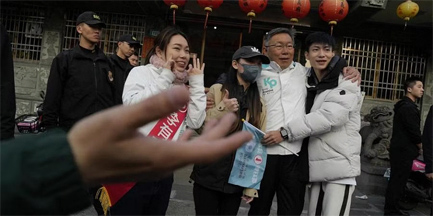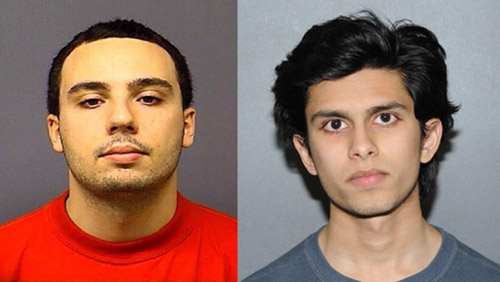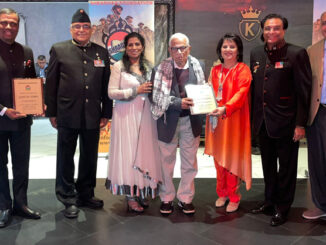
TAIPEI (TIP): With Taiwan’s high-stakes presidential election just days away, a nonconformist candidate has been resonating with the island’s youth, seemingly more concerned with the dearth of good jobs and affordable housing than the looming threat from China.
First-time voters are overwhelmingly drawn to Ko Wen-je, an outspoken surgeon-turned-politician who previously served as the mayor of Taipei, the island’s capital.
The 64-year-old has emerged as the third most popular candidate ahead of January 8 vote, behind those from Taiwan’s traditional opposing parties — the governing Democratic Progressive Party and the main opposition Nationalists, known as the Kuomintang or KMT.
The DPP and the KMT have dominated Taiwan’s politics for decades and have largely taken turns governing since the 1990s, after decades of martial law following Taiwan’s 1949 civil war split from China.
Beijing still claims Taiwan as its territory and threatens to take control over it by force, if necessary. In the face of that pressure, DPP has positioned itself as more independence-leaning while KMT has traditionally favored closer ties with Beijing.
Ko, meanwhile, has promoted himself as the alternative, seeking a middle ground and advocating patience with China. He founded the Taiwan People’s Party, or TPP, in 2019 and talks about more economy and pragmatic issues, including the cost and quality of education.
In a survey of its undergraduate students published last month, Soochow University in Taipei found that 33.9% of the respondents said they intended to vote for Ko, while 22.1% preferred William Lai, the DPP candidate and Taiwan’s vice president who is seen as the overall front-runner in the vote. About 5% favored KMT candidate Hou Yu-ih. The university said 12,119 students were polled from Oct. 30 to Nov. 3, though it did not say how the survey was conducted. No margin of error was given.
Generational fault lines
Part of Ko’s attraction to young voters is their perspective, analysts say.
There is a generational gap between first-time voters and older residents in the way they see the island’s political landscape, according to Liu Wen, a researcher at Academia Sinica, a Taipei-based research institute.
Older voters may remember the DPP as an up-and-coming party that challenged the once-entrenched KMT, Liu said. But those in their early 20s have come of age while the DPP was in power and see it as part of the political establishment.
Ko has emerged as an alternative to the “blue-green” divide, Liu said, referring to KMT’s and DPP’s official colours.
And having that third option “can be exciting for young people who want a more anti-establishment platform,” she said.
Ko himself attributes his popularity among Taiwan’s youth to the generational divide. Older voters, he told The Associated Press in an interview last week, have supported the KMT or DPP for 30 years.
“It is difficult for them to change,” Ko said. “But young voters are different.”
“It is not because I appeared (on the political scene) that Taiwan has a third party,” Ko also said. “It is because young people in Taiwan were already sick of these two parties that I have had the opportunity to form a third.”
Henry Su, a 19-year-old economics student at National Taiwan University in Taipei, said many of his friends are very pro-Ko and “they think he’s pretty good,” though he personally leans toward supporting Lai.
However, Su said he is “disappointed” by the DPP’s emphasis on upholding Taiwan’s sovereignty in the face of China’s threats — as opposed to addressing young people’s more immediate concerns, such as housing and education.
Fang Kai-hao, a 22-year-old studying biomechanical engineering at the same university, said he favours Ko for being more straightforward than the other candidates. Ko graduated from the medical school at the same university, “so the student community trusts him more,” Fang said.
The China threat
Beijing has described the election in Taiwan as a choice between war and peace and has blasted front-runner Lai as a separatist and a “destroyer of peace.” Chinese warships and military aircraft approach the island almost daily, despite Taiwan’s protests. Taipei accuses China of seeking to influence the vote through an array of pressures, from military harassment to politically motivated trade curbs. (AP)





Be the first to comment